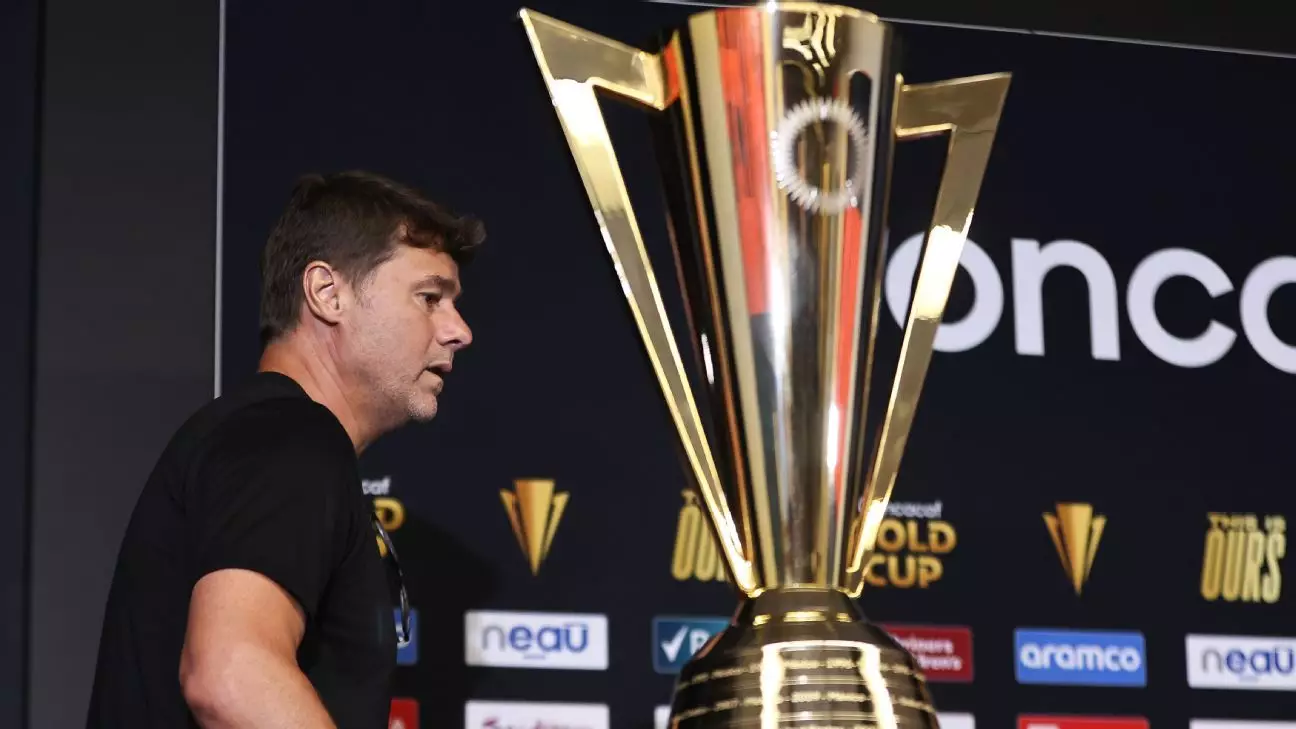In the realm of competitive sports, few experiences are as formative as facing high-stakes pressure. United States head coach Mauricio Pochettino’s candid assertion that this weekend’s Gold Cup final against Mexico is crucial for the team’s development signals a strategic understanding that adversity fosters resilience. Pochettino emphasizes that the “stress” and “pressure” of a decisive match serve as a vital dress rehearsal for the impending World Cup campaign. Ironically, after securing qualification for the 2026 tournament as co-hosts, the U.S. team finds itself in a peculiar position—no longer constrained by qualification pressures but still craving the adrenaline of competition to hone their mental toughness.
This stance reveals an astute acknowledgment that difficulty sharpens focus, cultivates unity, and exposes weaknesses that might otherwise go unnoticed in easier matches. While critics may argue that a lack of qualification pressure diminishes the team’s urgency, Pochettino convincingly counters by framing this final as an invaluable opportunity to simulate real-game stress. By intentionally seeking this challenge, he is effectively advocating for growth through difficulty, an approach that underscores the significance of mental strength in international soccer.
Historical Context and the Power Dynamics of the Gold Cup
The upcoming final marks the eighth time the United States has faced Mexico in the Gold Cup final—an enduring rivalry that has come to symbolize the rivalry’s intensity and historical significance. Mexico’s relentless pursuit of a 10th title, a record in the regional competition, adds layers of drama and ambition to this encounter. The stakes extend beyond silverware; they tap into national pride, identity, and longstanding sports rivalry. Pochettino, an accomplished coach seeking his first trophy with the U.S., steps into this historic contest with determination. While a majority of the spectators at NRG Stadium are expected to support Mexico, the American team aims to rewrite the narrative and establish its dominance in the region.
The journey to the final was unconventional, with the U.S. squad playing with an alternate lineup missing some of its marquee players like Christian Pulisic and Antonee Robinson. Despite these absences, the team’s goal remained unchanged: reaching the final was a victory in itself, serving as a stepping stone rather than the destination. Pochettino’s message to his players about dreaming of lifting the trophy illustrates a mindset rooted in aspiration, emphasizing that belief and collective effort are fundamental to overcoming formidable rivals.
The Psychological and Emotional Undertones of the Final
As the tournament’s climax approaches, the team’s cohesion and collective belief become paramount. Malik Tillman’s recounting of Pochettino’s dream about winning the trophy underscores the emotional investment of the squad. Such stories amplify the mental stakes of the game—this isn’t merely a regional cup but a crucible for the team’s confidence moving forward. The coach’s approach suggests an innate understanding that belief in victory can translate into tangible success on the field.
Furthermore, Mexico’s experience under Javier Aguirre adds a layer of strategic continuity that the U.S. team must contend with. Aguirre’s previous success by lifting the Gold Cup in 2009 demonstrates that experience at this level often tips the scale. For the U.S., winning this final would be more than just a trophy; it would serve as a statement of intent, showcasing their growth and readiness to challenge traditional powers.
While the match represents a significant competition, its true value lies in the opportunities it creates for mental fortification. For Mauricio Pochettino and his players, the pressure of this final offers an expectation—a chance to prove that they can thrive under stress, setting the stage for a more formidable campaign in the upcoming World Cup.

